It may have fallen on hard times in recent years, but the Central Motion Pictures Corporation (CMPC) has a proud tradition of movie making behind it, one, it insists, it will continue to uphold.
"Making movies will always be the fundamental business of the company. And we will keep going," insisted Chiu Shun-ching (
When a CMPC film picked up a Golden Horse (
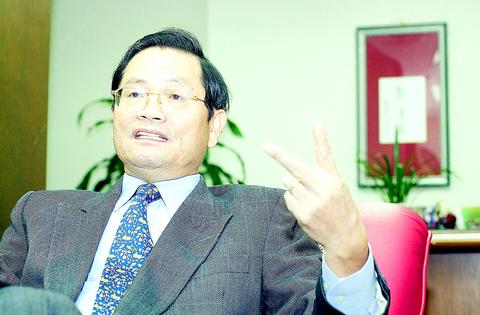
CMPC is one of the very few film companies dedicated to investing in and producing local films. This perseverance in the face of a far from encouraging economic climate is somewhat ironic, given the company's background as a KMT property with a strongly political agenda.
But over and above this, its history is also a reflection of the ups and downs of Taiwan's film industry as a whole.
The glory days
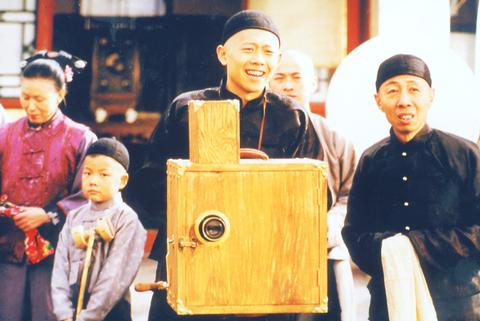
PHOTO: CMPC
"In those glorious days, the company's lights were never off. During the day we shot films in the studio and at night post production workers and printers were hard at work," recalls Chiu. "During that time [the 1950s], we produced 100 films a year," he added. This is in sad contrast to the six or seven it is likely to release for 2001.
During the 1950s, the most popular films were Japanese and Taiwanese-language films. Hollywood had not entered the market and the Hong Kong film industry was still learning about film production from Taiwan. Taiwanese product from Central Motion Pictures Studio and Taiwan Film Studio (台灣製片廠, which closed two years ago), were distributed across the entire SE Asian market.
All this took place not long after 1943, when CMPC was founded directly under the supervision of the KMT's Cultural Affairs Department (
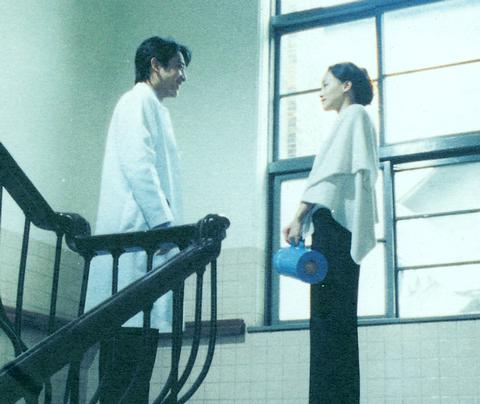
PHOTO: CMPC
During its heyday, CMPC owed one studio, the Central Motion Picture Studio (
"It was a big monopoly that incorporated the whole industry from top to bottom," said Hsiao Yeh (小野), a former production manager at CMPC and currently a programming manager at Taiwan Television Corporation (台視, TTV).
As a company owned by a political party, the majority of films made in the three decades between 1950 to 1970 were made up of "healthy" dramas, family romances and war films. The last of these were especially numerous, many having stories set against a WWII Pacific theater background, or films of anti-communist propaganda. Titles such as 800 Heroes (
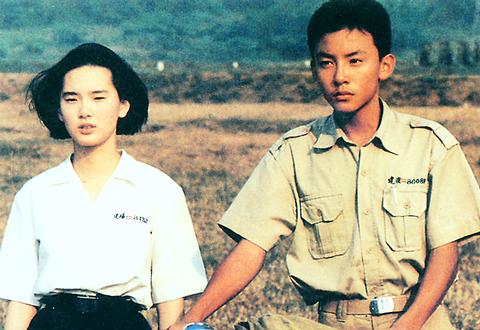
PHOTO: CMPC
"At that time, senior posts such as chief mangers and above were always given to people with military or intelligence backgrounds. And we made our films according to policies from above," said Hsiao Yeh.
Fighting the flood
In the 1980s, Hollywood films began to flood major cinemas, and production and acting talent, as well as audiences, were drawn away by television. According to Chiu, production volume dropped as a result.
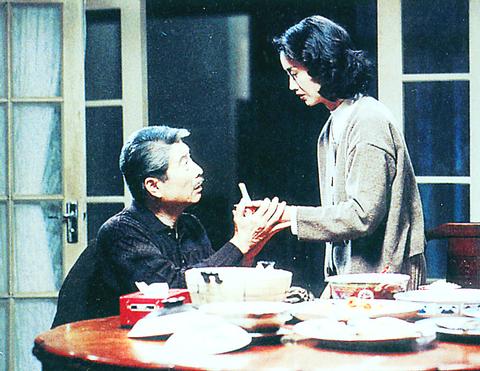
PHOTO: CMPC
But the slump in the 1980s was a turning point for CMPC, causing it to change direction and indirectly giving birth to the New Taiwan Cinema. The films of this period are typified by their sympathetic look at Taiwanese society and a realist cinematic presentation.
"When we joined the company, we knew that it had lost money on its previous big-budget war films, so we suggested that the company hire new directors, use non-professional actors and make low-budget films," said Hsiao Yeh, who is also a well-known novelist and scriptwriter.
It was Hsiao Yeh who pushed through films like the The Sandwich Man (
Films such as these gained great critical success and established the foundations of the New Taiwan Cinema. Moreover, films by Hou and Edward Yang (
"Now I look back, the company was like a dinosaur. It may have been very slow on its feet, but once the head changed direction, the body followed, and tremendous changes could happen. At that time, we were a bunch of idealists who made films that were somewhat against the KMT ideology. But we survived because we wanted to make good films," said Hsiao Yeh.
In the 1990s, the CMPC continues to invest in new films, giving opportunities to first-time filmmakers. Directors such as Ang Lee (
"We are like a nursery garden that fostered new talents. Those people may not work with us anymore, but we have no regrets," said Chiu.
But he recognizes that the golden age has definitely passed.
Although CMPC continues to invest in filmmakers such as Ann Hu (
"Other film companies have transformed themselves into distribution companies that only buy films from overseas for local distribution. But we, some might say foolishly, still continue making films," said Chiu.
With the KMT's loss of political power last year, the party began to privatize party assets in the face of criticism from the former opposition parties. Many of its properties have been sold off; but more importantly for its survival is the fact that it cannot hold on to the talent that it attracted in its days of glory. A highly bureaucratic corporate culture and the presence of unprofessional management groups have seen men like Tu Duu-chih (杜篤之) and cinematographer Lee Ping-bing (李屏賓) leave the company to become well-established artists in their own right.
"If the company wants to keep from shrinking," said Hsiao Yeh, "bringing in professional management or changing its corporate culture are the only two alternatives."

This is the year that the demographic crisis will begin to impact people’s lives. This will create pressures on treatment and hiring of foreigners. Regardless of whatever technological breakthroughs happen, the real value will come from digesting and productively applying existing technologies in new and creative ways. INTRODUCING BASIC SERVICES BREAKDOWNS At some point soon, we will begin to witness a breakdown in basic services. Initially, it will be limited and sporadic, but the frequency and newsworthiness of the incidents will only continue to accelerate dramatically in the coming years. Here in central Taiwan, many basic services are severely understaffed, and

Jan. 5 to Jan. 11 Of the more than 3,000km of sugar railway that once criss-crossed central and southern Taiwan, just 16.1km remain in operation today. By the time Dafydd Fell began photographing the network in earnest in 1994, it was already well past its heyday. The system had been significantly cut back, leaving behind abandoned stations, rusting rolling stock and crumbling facilities. This reduction continued during the five years of his documentation, adding urgency to his task. As passenger services had already ceased by then, Fell had to wait for the sugarcane harvest season each year, which typically ran from

It is a soulful folk song, filled with feeling and history: A love-stricken young man tells God about his hopes and dreams of happiness. Generations of Uighurs, the Turkic ethnic minority in China’s Xinjiang region, have played it at parties and weddings. But today, if they download it, play it or share it online, they risk ending up in prison. Besh pede, a popular Uighur folk ballad, is among dozens of Uighur-language songs that have been deemed “problematic” by Xinjiang authorities, according to a recording of a meeting held by police and other local officials in the historic city of Kashgar in

It’s a good thing that 2025 is over. Yes, I fully expect we will look back on the year with nostalgia, once we have experienced this year and 2027. Traditionally at New Years much discourse is devoted to discussing what happened the previous year. Let’s have a look at what didn’t happen. Many bad things did not happen. The People’s Republic of China (PRC) did not attack Taiwan. We didn’t have a massive, destructive earthquake or drought. We didn’t have a major human pandemic. No widespread unemployment or other destructive social events. Nothing serious was done about Taiwan’s swelling birth rate catastrophe.